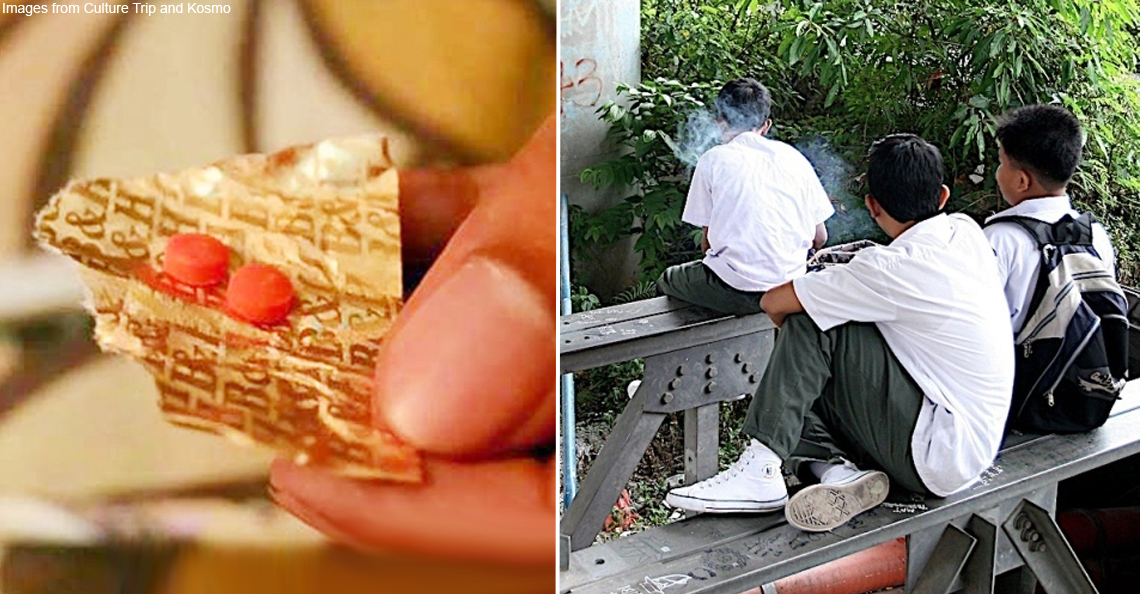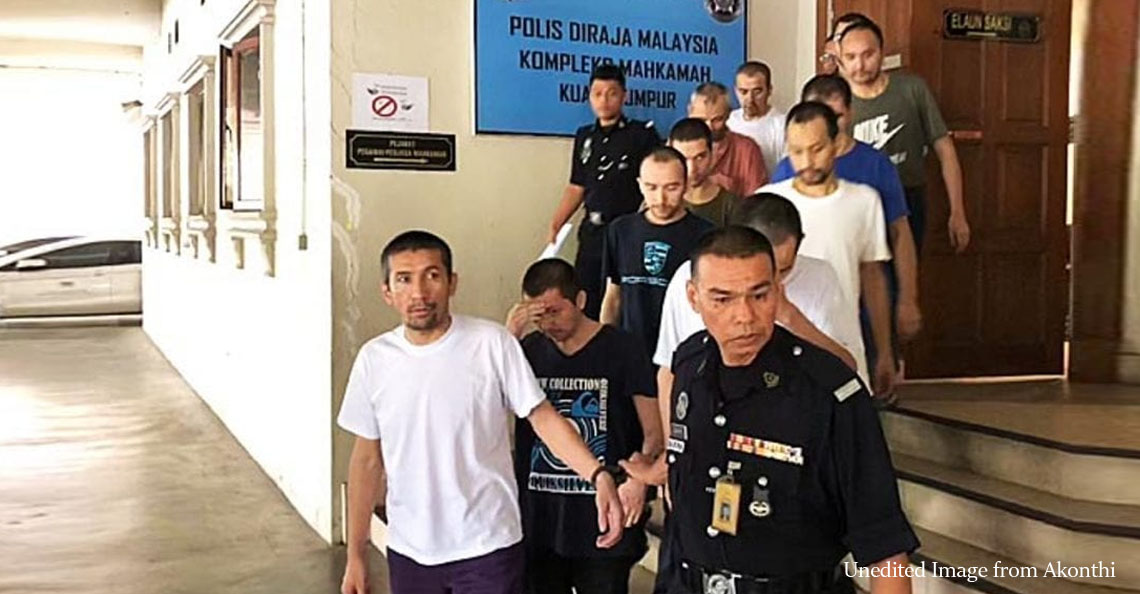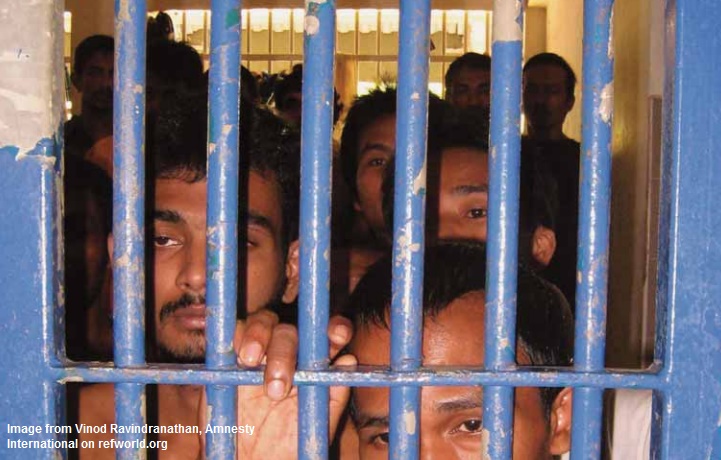New strain of super malaria that cannot be killed with drugs spreads fast across SEA close to Malaysia
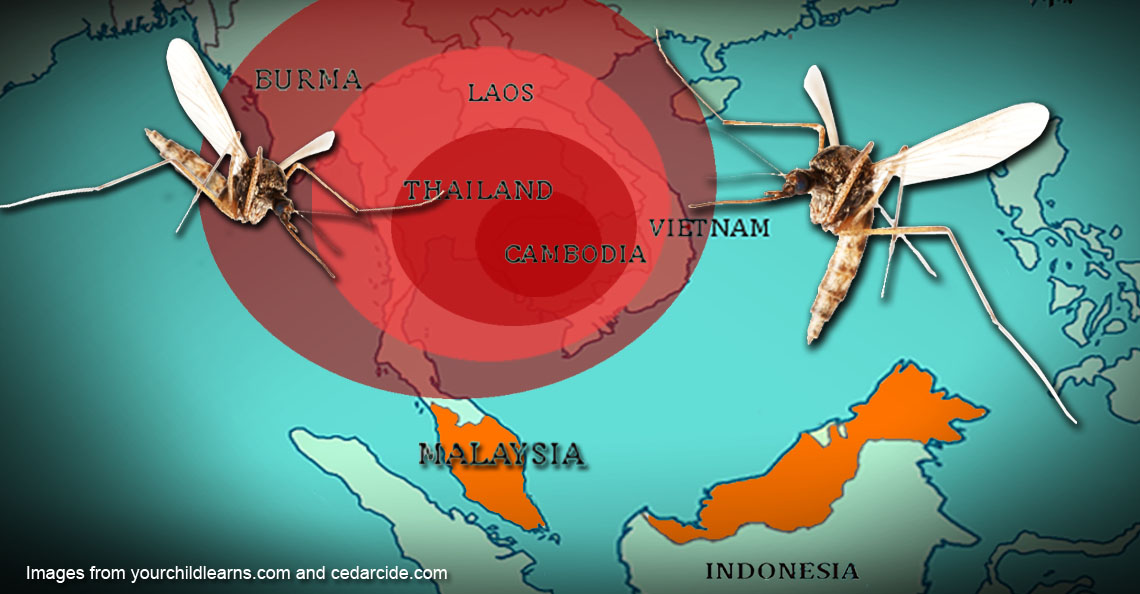
- 1.4KShares
- Facebook1.3K
- Twitter4
- LinkedIn6
- Email15
- WhatsApp38
You’ve heard of malaria, but did you know there is super malaria now? Talk about a disease and nobody panics, add the word ‘super’ in front of that disease everyone loses their minds. In all seriousness though, scientists are warning that the spread of super malaria in South East Asia is rapidly becoming an alarming global threat!
It emerged in Cambodia, then spread through Thailand, Laos, and has arrived in Vietnam… uncomfortably close to home.
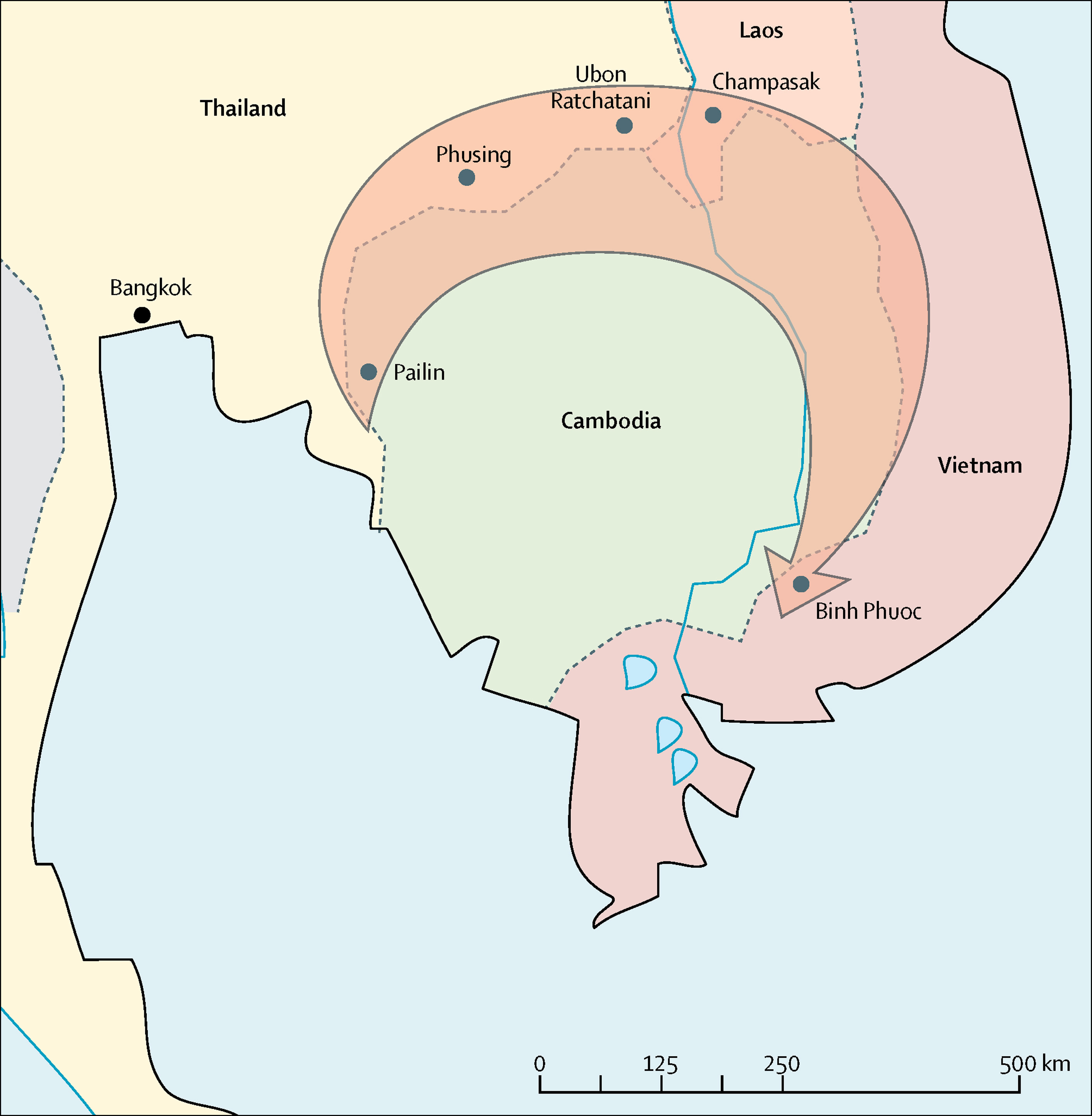
“We think it is a serious threat. It is alarming that this strain is spreading so quickly through the whole region and we fear it can spread further [and eventually] jump to Africa.” – Prof. Arjen Dondorp, Head of Malaria Research at the Mahidol-Oxford Tropical Medicine Research Unit in Bangkok, BBC News
Waittaminute. “Super malaria”? Da heck is that?
Well, let’s start with the ‘basic’ package…malaria. Malaria is endemic in Malaysia and has been around for more than 100 years. The disease is most commonly transmitted by an infected female Anopheles mosquito, when the bite introduces the parasites from the mosquito’s saliva (mosquitoes have saliva?!) into a person’s blood. The parasites then travel to the liver where they mature and reproduce.
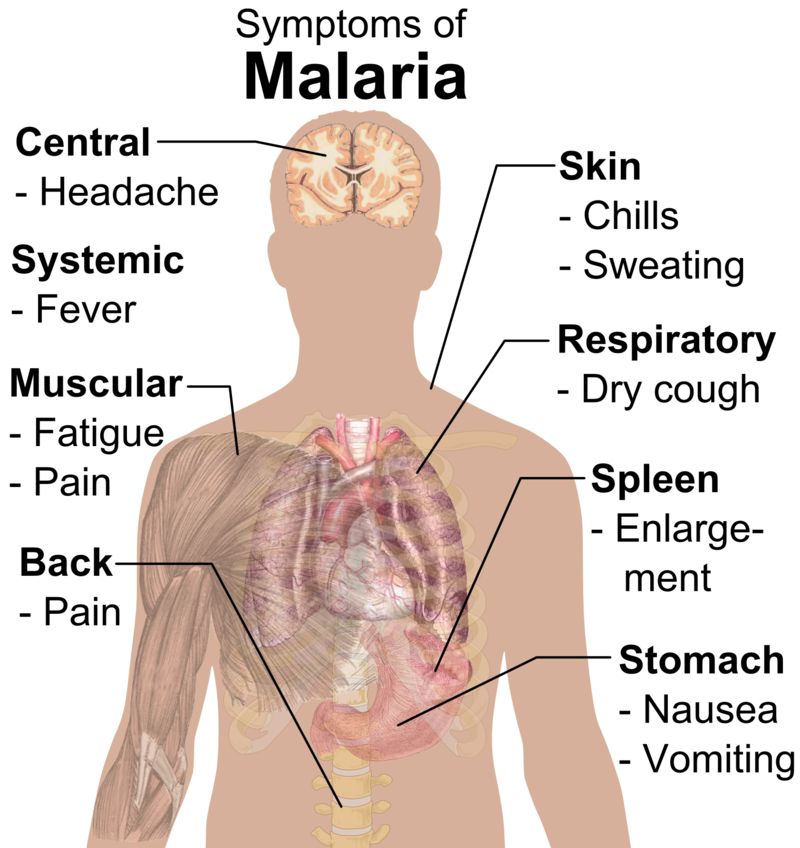
Malaria is a parasitic infection caused by five Plasmodium species – P. falciparum, P. vivax, P. ovale, P. malariae, and P. Ramlee (kidding, we made the last one up 😛 ). The fifth is P. knowlesi, a species that jumps from monyets to humans, but if we’ve learned anything from misconceptions about how AIDS spread from monkeys to humans, maybe the les we know the better.
Anyway, we’ll spare the nitty gritty details for now… So what makes this malaria SUPER malaria?
See, there are many types of drugs that can help treat malaria. When properly treated, people with malaria can usually expect a complete recovery….UNTIL NOWWW. As it turns out, people have been taking medicine to the point that they’ve built resistance to their effectiveness! So that’s when the stronger parasites are referred to as super malaria. Ain’t no kryptonite gonna help neither. 🙁
Now the super malaria parasite cannot be killed with drugs!
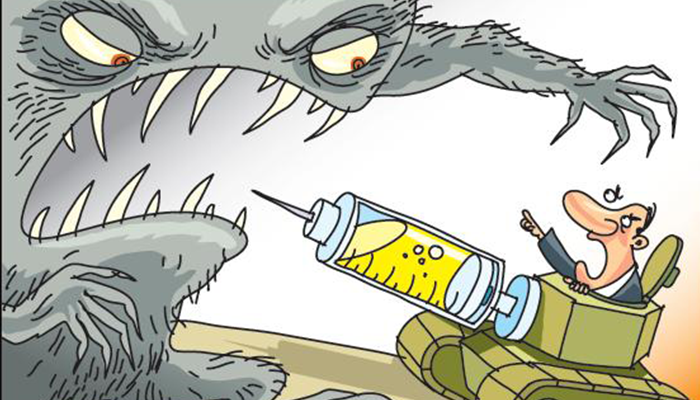
The first choice treatment for malaria is usually artemisinin, in combination with piperaquine, reported BBC. But the newly-mutated, highly drug-resistant strain of super malaria we’re talking about has rendered the drugs less effective!!
Some of us may already be familiar with how drug resistance occurs – if you give people drugs and the parasites don’t die from it, they can build a resistance towards the drug.

In a letter, published in The Lancet Infectious Diseases, researchers detail this “recent sinister development”, that there have now been “alarming rates of failure”. Prof. Arjen said the treatment was failing around a third of the time in Vietnam, while in some regions of Cambodia the failure rate was closer to 60%.
“Anti-malarial drug resistance tends to somehow, for reasons we don’t completely understand, start in that part of the world. So the treatment of malaria is in general more difficult in that part of the world.” – Dr. Arjen in a podcast
Use of oral artemisinin-based monotherapy (oAMT) has been identified as the major reason for resistance. Don’t worry though, oAMT has never been allowed to be used in Malaysia! Since 2007, the World Health Organisation (WHO) has urged malaria-endemic countries to stop producing and marketing oAMT. Instead, it recommends artemisinin-based combination therapies (ACT).
Today, one-third of health facilities in Myanmar continue to stock oAMT despite national efforts to ban them, according to the Malaria Journal. This causes its neighbours in the Greater Mekong Subregion (Cambodia, Thailand and Laos specifically) to suffer from resistance. >:(
Consequently, resistance would be catastrophic in Africa, because as we mentioned, that’s where 92% of all malaria cases happen. But very interestingly, Prof. Arjen explained that in Africa, a child gets bitten once or sometimes several times in a day by infected mosquitoes:
“If that child doesn’t die from the disease they will build up immunity in the first years of their lives, so you hardly see any severe disease after the age of five. Whereas in Asia people are bitten maybe once a year by an infected mosquito so they don’t have time to build up immunity.” – Dr. Arjen
So here are two (and more) ways to tackle super malaria
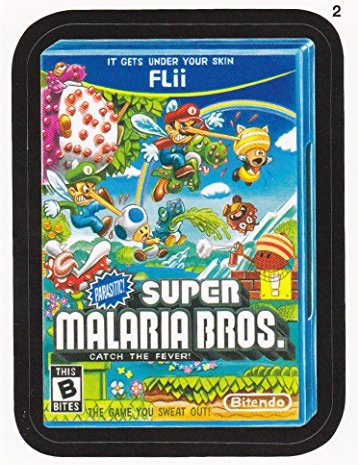
Although there is no reported danger of Malaysians developing resistance to super malaria AS YET, we can still take steps to prevent it from happening. How can we do that? By ensuring correct medicine usage for one. As mentioned, Malaysia does not allow the sale of oAMT. And FYI, the Ministry of Health provides WHO-recommended artemisinin-based combination therapies (ACT) free-of-charge for all ages in the public sector.
Some other aspects to follow are expanding diagnostic testing of malaria, ensuring quality treatment, and good patient adherence to the prescribed treatment. Like when the doctor says two pills a day, do follow instructions. Don’t let the parasites get stronger. KILL THEM! KILL THEM ALL!!
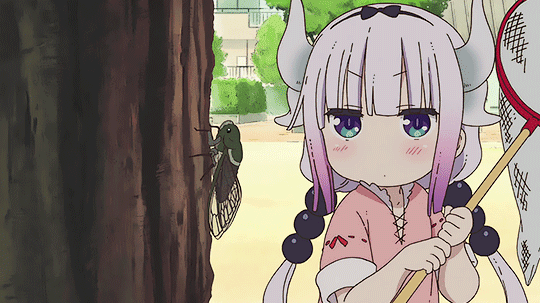
Dengue is a bigger concern than malaria in Malaysia at this point, but another way we can kill two mosquitoes with one swat, is vector control. By killing all mosquitoes in general, we can eradicate malaria, dengue, Zika, and other mosquito-borne diseases. If you remember we mentioned our previous article, mosquitoes (not just parasites) can also become resistant to fumigation. 🙁 So the most effective way to get rid of them is to destroy breeding grounds entirely, not just fumigate the adult mosquitoes.
“Around 700,000 people a year die from drug-resistant infections, including malaria. If nothing is done, this could increase to millions of people every year by 2050.” – Michael Chew, Wellcome Trust medical research charity, BBC
Oh well, we can always call the Super Malaria Bros.
- 1.4KShares
- Facebook1.3K
- Twitter4
- LinkedIn6
- Email15
- WhatsApp38

